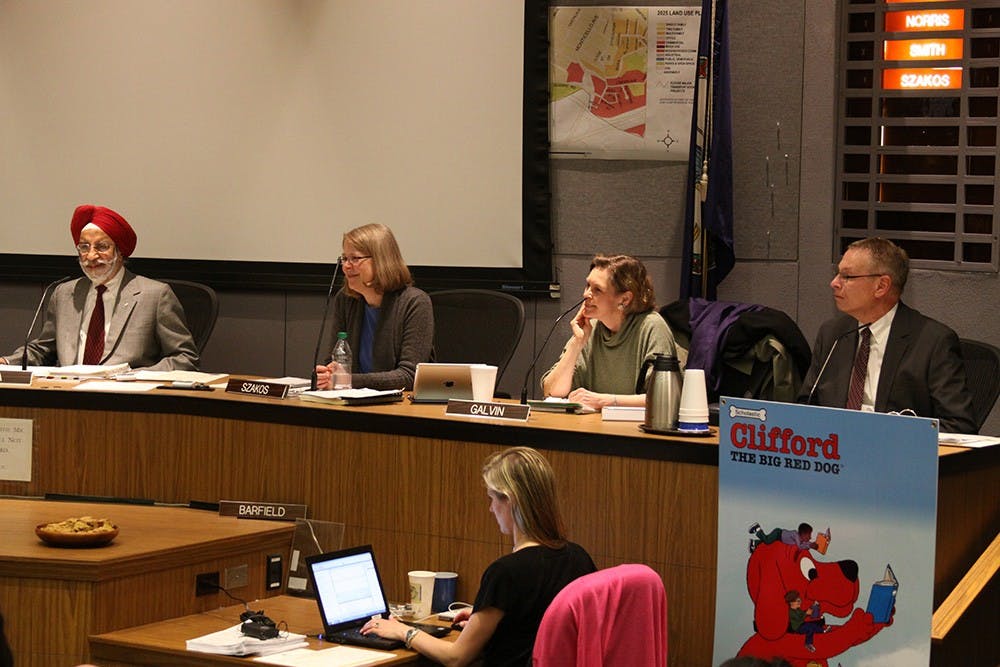Charlottesville City Council passed the 2015-16 fiscal year budget Tuesday evening.
The budget has proved contentious throughout the budgeting process due to its proposed 1 percent increase in the meals tax, from 4 percent to 5 percent.
Local restaurant owners came together against the tax increase, but the budget passed with the provision to reduce the tax if, after two years, restaurant revenues declined by 10 percent or more as a direct result of the tax.
Prominent changes to the budget model from the previous fiscal year include a pay raise for staff to account for inflation and to ensure that wages are comparable for those living inside city limits to those living in outer areas of the Charlottesville community, as well as changes in the infrastructure on West Main and the addition of new police officers.
Council member Kristin Szakos said the Council hopes to create a better relationship between the community and the police force by adding more officers.
“We’re looking to build a positive relationship and prevent crime rather than just respond to crime,” she said.
Szakos said the budget was considered to be fairly stable, exempting the meals tax increase. A meals tax is separate from the 5.3 percent sales tax from the state, since it is passed by the localities as a luxury tax on prepared meals.
Source: The Daily Progress
The 4 percent Charlottesville meals tax was the lowest in the state — and with the raise to 5 percent, it will now be comparable to other localities. The Charlottesville Restaurant Association told the Council the 1 percent increase would likely not affect the behavior of customers, though it could depend on the restaurant.
Local restaurant owners, such as Maya co-owner Peter Castiglione, said they worry the meals tax — a regressive tax — will hurt lower-income families as well as the restaurant industry. Since restaurants must pay state and local taxes — totaling approximately 9 percent — as well as a processing fee when customers use credit or debit cards, the restaurants may come up short after paying these fees and the normal costs of a restaurant, including wages.
“The higher the tax goes, the more money goes to taxes than the industry, so the less money employees get, forcing them to spend less of that income in the economy,” Castiglione said.
The tax money will go into a general fund that will then go toward education, public safety and infrastructure. Since the state has cut funding for schools by around 30 percent in the past several years, pressure has been put on localities to make cuts and raise more money for the school system.
“If the local economy is doing well, people eat out more, and I believe this tax will help us to do what keeps our local economy healthy,” Szakos said.
Castiglione said the government ran a surplus last year, so many restaurant owners are wondering where that money went and if the city is raising the tax out of necessity.
“We want our city to be accountable for how they spend our money and how they raise our taxes because we as taxpayers and tax collectors have a right to know,” Castiglione said.
The diverse Charlottesville restaurant community competes only with New York City for most restaurants per capita. Many of the restaurants source primarily local produce and employ a large amount of Charlottesville citizens. Castiglione said restaurateurs worry that if the meals tax continues to rise in the future, the city will be less appealing for these small, locally-owned businesses, and Charlottesville could lose that diversity.
“We have one of the most competitive [restaurant] markets in the U.S., and raising prices is a big deal,” Castiglione said. “They’re going to spend more, and they’re going to raise the meals tax again in a few years, and while they’re doing that, they’re undercutting all the ‘Mayas’ in the community.”







